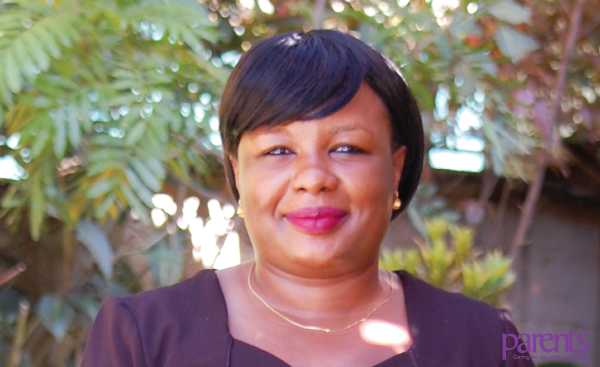MARYANA NANDECHE Helping you keep children safe

A few years ago, Maryana Nandeche couldn’t help but notice the increasing number of children getting lost. She felt an obligation to help find the missing children and to start a programme on child safety so as to curb such occurrences. She thus founded Simba-safe Kenya, an organisation that specialises on child safety training. She talks to LILY RONOH about her venture.
I am Maryana Nandeche, a 33-year-old communications and public relations graduate of Daystar University. I am the founder of Simba-safe Kenya where, besides managing the day-to-day activities of the organisation, I am a trainer. I love teaching and that may be the reason why I ditched communications to do training. My former employer noticed I was good at training and told me as much. This was an epiphany but the question that lingered on my mind was: What do I train people on?
As this question crisscrossed my mind, many things were going on in my surrounding. For one, many children were getting lost and their photos were circulating on social media specifically Facebook seeking help to find them. However, the posts would leave more questions than answers. Who do we report to? Was the case reported to the police? Was the child found? Was anything being done to stop such cases from recurring?
It is here that I found the answer to the training needs in the country. I started seeking information on child safety and all I found were international manuals. There was very little information that addressed the safety needs and life skills especially with regard to children in Kenya. Also, there was a lot of blame game among parents, the church and the school. Parents think it’s the school’s responsibility to teach children about safety and life skills while the school thinks it’s the parent’s responsibility and the church is also expected to play a role. In the end, no one does it.
Hence the birth of Simba-safe Kenya; a personal safety educational programme. We train children, parents and caregivers on safety skills. But our main agenda is to have children being more confident and proactive when faced with a risky situation. A confident and assertive child is less likely to be taken advantage of compared to a cowardly child. A child needs to know their full names, where they live and which school they go to. They also need to know safe strangers (policemen, guards, cleaning staff in uniform and supermarket cashiers) and safe buildings (church, schools and shops) where they can run to for help.
Why Simba-safe? The lion is a symbol of strength. Secondly, we deal with children between the ages of five to 12 and it is during this stage that children learn about animals in school and they are likely to relate easily with the lion. We have a mascot that we use during the trainings just to make the lessons more interactive, fun and active.
Our programmes include personal safety, online safety, traffic safety, fire safety, emergency disaster response and first aid. The trainings are based on the premises that if you train someone from an early age about such issues, as they grow up, they will know how to handle issues proactively and not reactively as we Kenyans are used to.
Most activities that we carry out are play based. We use games, craft, skits, songs and videos in what is referred to as edutainment (combining education and entertainment). Our activities are anchored on the principle of active learning as opposed to passive learning and so the children are highly engaged in the learning process. For parents, we train them on child safety, how to know your child is going through trauma and how to converse with one’s child without scaring them. As for house helps, they are trained on first aid skills, school bus procedure and dangers that children are likely to face so that they can watch out for them.
The response from stakeholders is great as people are thirsty for knowledge especially when it concerns the safety of their children. We do most of our trainings in schools, social media and mummy-related events. We are currently based in Nairobi and its environs and we hope to grow to other parts of Kenya.
My parting shot goes to parents and I beseech them to come back and parent their children. Some of the incidences we are experiencing with children are because parents are no longer there to guide their children. It is imperative to impart our children with life skills that are not only important for them now, but also in the future.
Published April 2016




